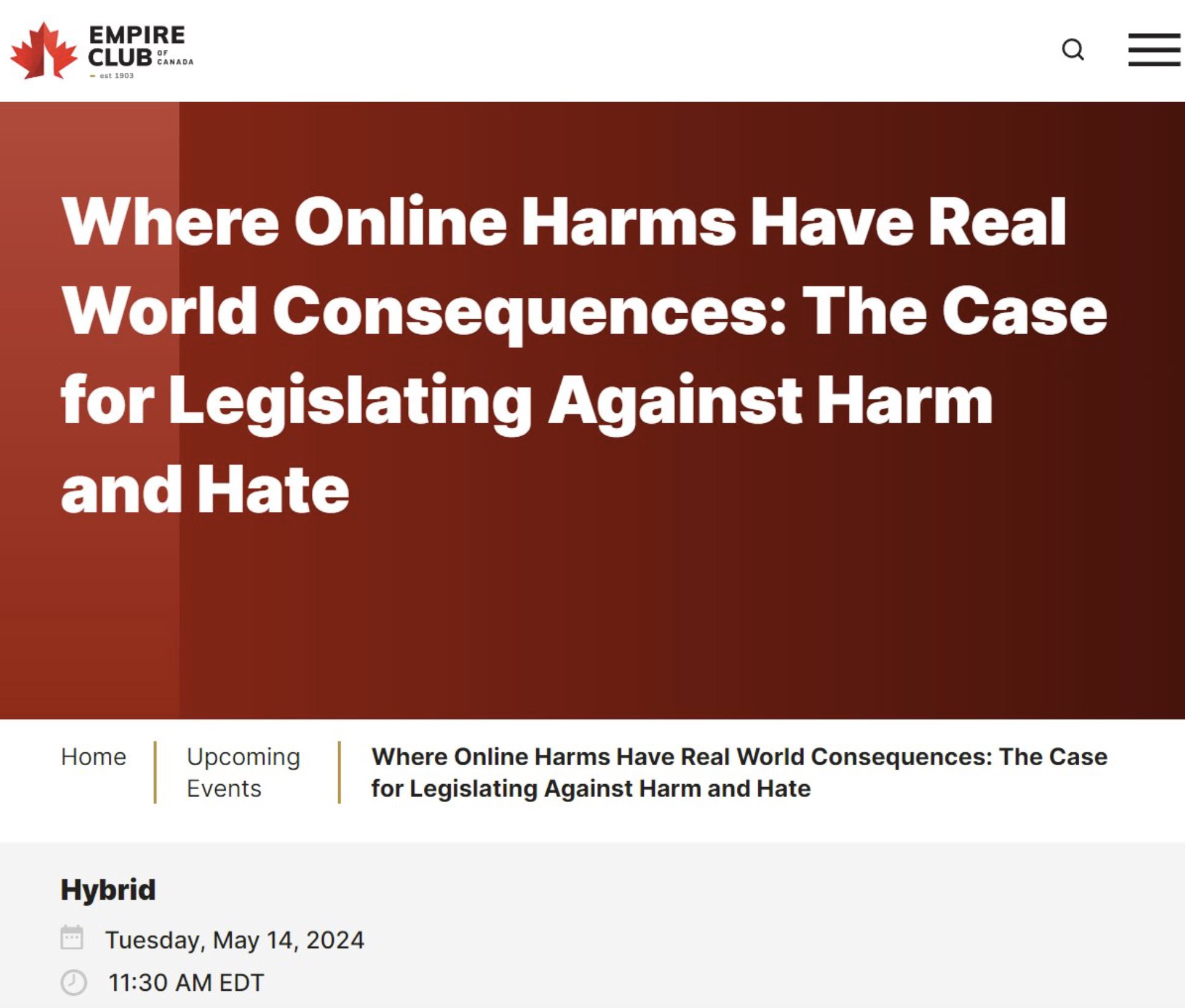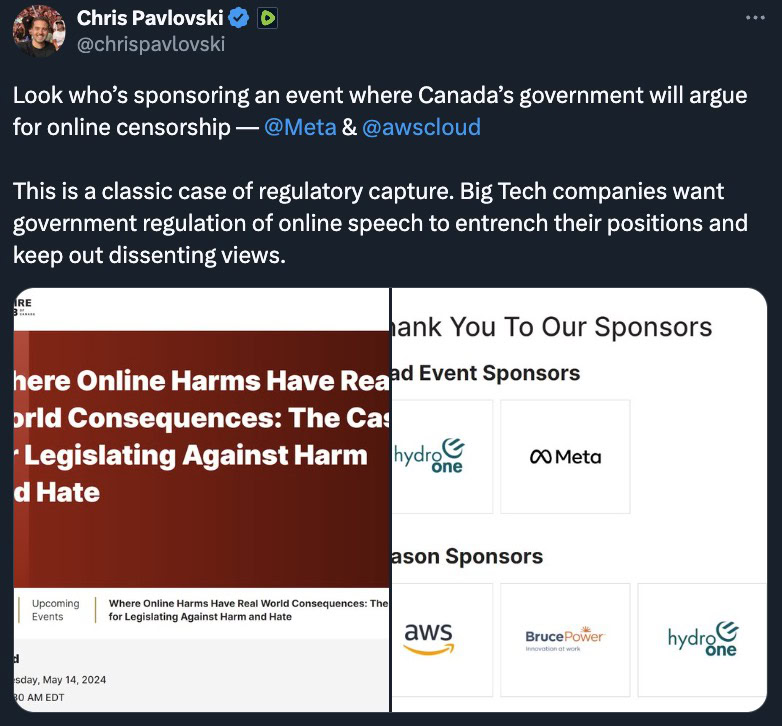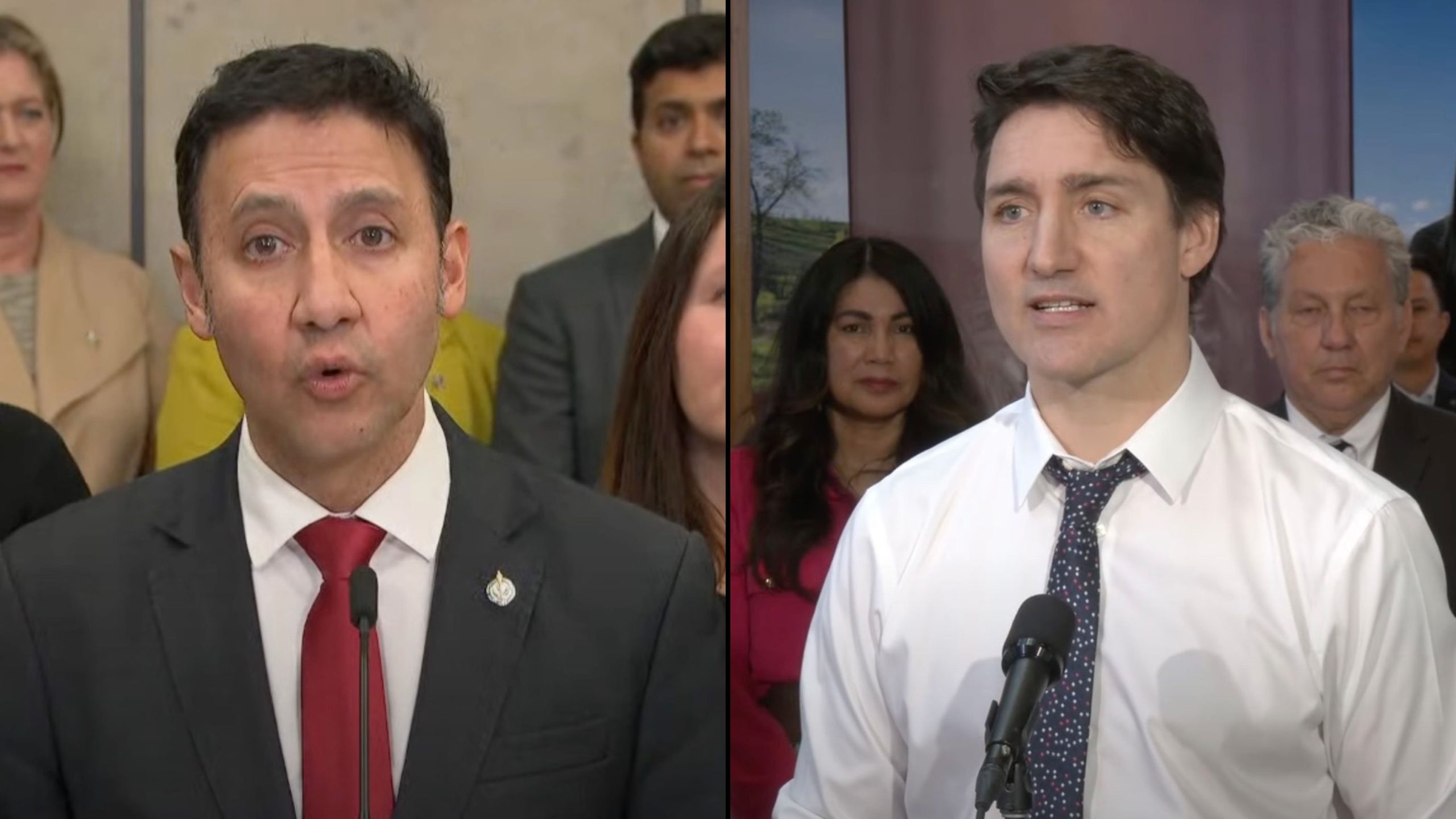Canada’s government, represented by “captain of censorship” Arif Virani – the country’s justice minister and attorney general, will use an upcoming event as the opportunity to once again push for more speech-restrictive legislation, allegedly solely in order to deal with online “harm and hate speech.”
No surprise there, but the list of the sponsors of the event – dubbed, “Where Online Harms Have Real World Consequences: The Case for Legislating Against Harm and Hate” – is interesting. It includes Meta, and Amazon Web Services (AWS).

There could be different interpretations of this, one being that the giants want online speech regulated “to entrench their positions and keep out dissenting views” – as Rumble CEO Chris Pavlovski put it.

Or it could be that Canada’s relentless policies damaging these companies’ business interests in the process of restricting speech are motivating the likes of Meta and Amazon to try to stay on the authorities’ good side, including through sponsorships.
And, two wrong things get to be true at the same time, so we may be witnessing some combination thereof.
In any case, the Empire Club, where the gathering is to be held, announced it by saying participants will be able to learn about the government’s plans to “tame some of the worst excesses of life online, and protect the rights of all Canadians who wish to express themselves without fear.”
All Canadians, that is, except those Virani would like to be put under house arrest or cut off their internet access as a kind of dystopian “preventive measure” – namely, when there is “fear” they might commit whatever’s designated as hate propaganda or crime, at some point in the future.
This line of thinking among Canada’s authorities was revealed in February, as Virani was trying to defend the Online Harms Bill (Bill C-63).
The original idea was to force platforms to remove content branded as “hate speech” within 24 hours, but this proved too controversial, so its authors came up with some “new tools” to tackle the issue.
One of those seems to be the provision to keep people off the internet, under house arrest, and make them wear an electronic tag – before any “hate crime” has actually been committed.
Experts are concerned about the constitutionality of all this.










